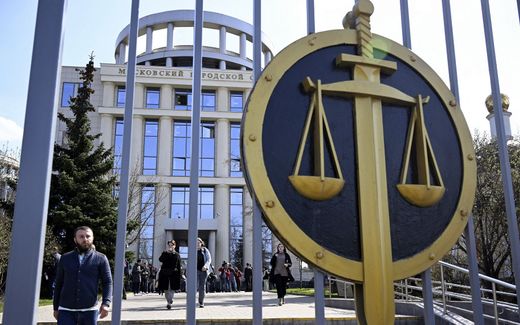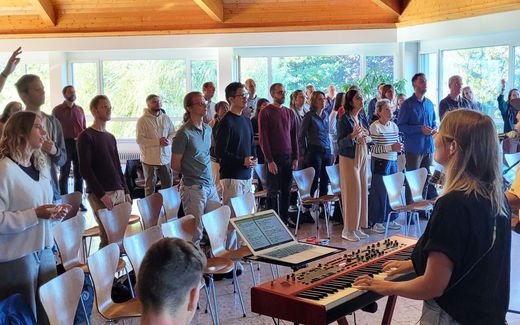Evert’s review: Bible commentary gives insight in need of Central and Eastern Europe

The monument of John Hus in Prague is part of the cover illustration of the new Central and Eastern European Bible Commentary. Photo Facebook, Shutter Walker Photography
Christian Life
A Bible commentary for Central and Eastern Europe? Would that differ from a commentary for Western Europe or Southern Africa? That could be a question for anyone who bumps into the “Central and Eastern European Bible Commentary” (CEEBC).
No, Central and Eastern Europe (CEE) do not have another Bible. God’s Word is the same everywhere. But CEE differs from the rest of the world.
What is different there? First, this region has suffered under Communist rule for 45 years. Behind the Iron Curtain, the Christian life was suppressed. The states promoted another worldview: materialism. Several generations of leaders of the underground church lacked proper theological education. That has left a heritage. Even after more than 30 years, the commentary’s authors seem convinced they are still in the middle of a change.
Second, most countries in CEE don’t know the Protestant establishment from the past as other regions do. Hungary was the only country where Protestantism became a prominent religion (except for Latvia and Estonia). Because of that, there are almost no ancient seminaries that have been serving the church for centuries. In that way, Central and Eastern Europe are lagging behind.
Third, the church in many CEE regions is loosely organised, because of the many independent congregations, with few denominational seminaries. Preachers are often not trained ministers but lay pastors. The CEEBC, presented in March 2023, will help fill that gap.
This commentary is published by Langham Partnership. This organisation in England has the goal that “every pastor in every church [should] be equipped to preach the Bible”. From that vision, Langham published the first ever commentary in Russian in 2016: the Slavic Bible Commentary (SBC). In a way, this English version can be seen as a follow-up to that.
Interestingly enough, the CEEBC is not in German or Russian. Until 30 years ago, those languages would reach as many people as possible in CEE. But today, the common language has changed to English. This shows that also the Christian eyes in those countries have turned westwards.
By the way: many Westerners would use the term Eastern Europe for everything behind the Iron Curtain. They simply have no idea of Central Europe. Well, Central Europe is Poland and Hungary; Eastern Europe is Belarus, Russia, Ukraine and Romania. Of course, the region is no unity. Estonia is different from Bulgaria; Czechia is not the same as Moldavia.

Discipline
How is the commentary structured? It starts each section with an introduction: about the Pentateuch, the historical books, etc. Each Bible book has its own introduction as well, followed by an outline of the book and suggestions for further reading. The actual explanation of the text is sober and short. This might not satisfy everyone, but there might be no other choice if you go in one volume from Genesis 1 to Revelation 22.
The harmony through the 1676 pages is striking. With so many contributors, the editors must have prioritised discipline.
The English text is easy to read. The CEEBC is not meant as an academic book but as a help for Sunday school teachers, students and ordinary church members.
Audience
The authors come from the region itself. Most of them are connected to a seminary in one of the countries. The Dutch professor Anne-Marie Kool (who worked in Hungary for many years and is now in Croatia) is one of the exceptions.
Considering the authors, it is striking that no scholars are mentioned from the ‘real’ Eastern Europe: Russia, Belarus or Ukraine. And most of the contributors are from a Baptist or Evangelical background, not from a Reformed. There is only one author from the Hungarian Reformed Church. The unevenness in the selection of authors is not clarified.
It is clear, though, that all the authors purposely focus on Central and Eastern Europe. The primary audience lives there. And that is the world from where they use examples. There is almost no page without references to something there. Be it in the introduction to a Bible book or in the actual text explanation. Sometimes historical events from ages ago, and occasionally little incidents in the country where the author lives.
Apart from the Bible commentary, the CEEBC contains 104 background articles about useful issues, varying from corruption to family life, from porn addiction to patriotism and nationalism. In these articles, you constantly see the need of the region. Very helpful.
Take, for instance, this sentence about creation care: The first sin [in paradise] already set a basic pattern, by taking more from creation than we need. What a timely phrase that is!
For me, as a Westerner, it is very informative to read about the Reformation and the Counter-Reformation in CEE. We are used to look at the Reformation from our national perspective. But things went differently in Central and Eastern Europe: the Counter-Reformation there could swipe almost all Protestants from the map.
Origin
What position does this book take towards the Bible? The CEEBC takes an Evangelical approach and presents the Bible as central to the Christian life. However, it does not clarify how the Bible is the Word of God, whether it is inspired and what its authority is.
In the historical books, the CEEBC takes the middle ground between fundamentalist and modern views. For instance, in the beginning, it says that Genesis 1 is not meant to give scientifical information about the origin of the world. It also points to “mythical” elements in the creation story. In the explanation itself, however, the CEEBC follows the words of the text without any restraint.

The same with books as Job or Jonah. The introduction distances itself somehow from the claim that everything in the book is literal history. Still, the explanation is faithful to the text.
Weakness
No doubt, the CEEBC could help many in the region and beyond. The fact that it refers so often to circumstances in CEE is, of course, a strong point of the CEEBC. But it is also its weakness. This book might have some reprints, but over 15 years, it will be considered outdated since the circumstances develop so quickly. Let’s hope that it will have done its work by then.
Central and Eastern European Bible Commentary. Corneliu Constantineanu (editor). Langham Partnership, 2023. ISBN 978-1-78368-822-7. 1676 pages. Price approximately 60 Euros.
Evert van Vlastuin (1972) has been working as a journalist from the early 90s.

He has interviewed several Nobel Peace Price winners as the former South African president F. W. de Klerk and two from Northern Ireland, John Hume and David Trimble.
From 2001, he worked as a foreign news reporter for the Dutch Reformed Daily. Since 2021, he works as managing editor for the start-up CNE.news.
Respond to Evert by e-mail.
Related Articles









